In today’s digital age, launching an online store is more than just a trend—it’s a necessity for business growth. With eCommerce sales projected to account for 24% of global retail sales by 2026, there’s never been a better time to establish your digital presence. But to succeed in this competitive landscape, you need the right foundation: a robust eCommerce Content Management System (CMS).
At Atwix, we understand that choosing the best eCommerce CMS platform is crucial for your online success. The right CMS simplifies store management, allowing you to focus on what truly matters: growing your sales and refining your marketing strategies. Many platforms even empower you to build a professional-looking store without extensive coding knowledge.
In this comprehensive guide, we’ll explore the top CMS platforms for eCommerce, helping you make an informed decision for your business. Let’s dive into the world of eCommerce CMS and discover the perfect fit for your online venture!
Still Deciding on the Right eCommerce CMS?
Let Atwix simplify the decision-making process with tailored advice to match your business needs and goals.

Why Your eCommerce Business Needs a Powerful CMS
A robust Content Management System (CMS) is essential for the success of any eCommerce business. Exploring the most popular eCommerce CMS systems helps businesses identify platforms that cater to their unique requirements, ensuring the best fit for their goals. Here’s why it matters:
1. Enhance User Experience
- Create an intuitive, visually appealing shopping journey.
- Ensure consistent performance across devices with customizable templates and responsive design offered by leading ecommerce CMS platforms.
2. Scalability for Growth
- Accommodate increased traffic and product catalogs as your business grows.
- Add new features and functionalities effortlessly.
3. Simplified Content Management
- Easily update product descriptions, publish blogs, and create landing pages.
- Keep your website fresh and aligned with market trends.
4. Boost SEO Performance
- Rank higher on search engines with built-in SEO tools.
- Optimize meta tags, URLs, and sitemaps for better visibility and traffic.
5. Advanced Security and Data Protection
- Safeguard customer data with features like SSL certificates, PCI compliance, and encryption.
- Protect your business reputation by minimizing cybersecurity risks.
6. Streamlined Product Catalog Management
- Manage large inventories with bulk uploads, advanced filtering, and integration tools.
- Provide a smooth shopping experience for your customers.
7. Seamless Integration
- Connect your CMS with payment gateways, CRMs, and ERPs through extensive APIs.
- Ensure all your systems work together to improve efficiency.
A powerful CMS for eCommerce is more than just a tool—it’s the backbone of a scalable, secure, and customer-centric online store. Whether you’re looking to enhance your user experience, simplify operations, or boost your SEO, the right CMS will drive your business toward long-term success.
Must-Have Features in the Best eCommerce CMS Platform
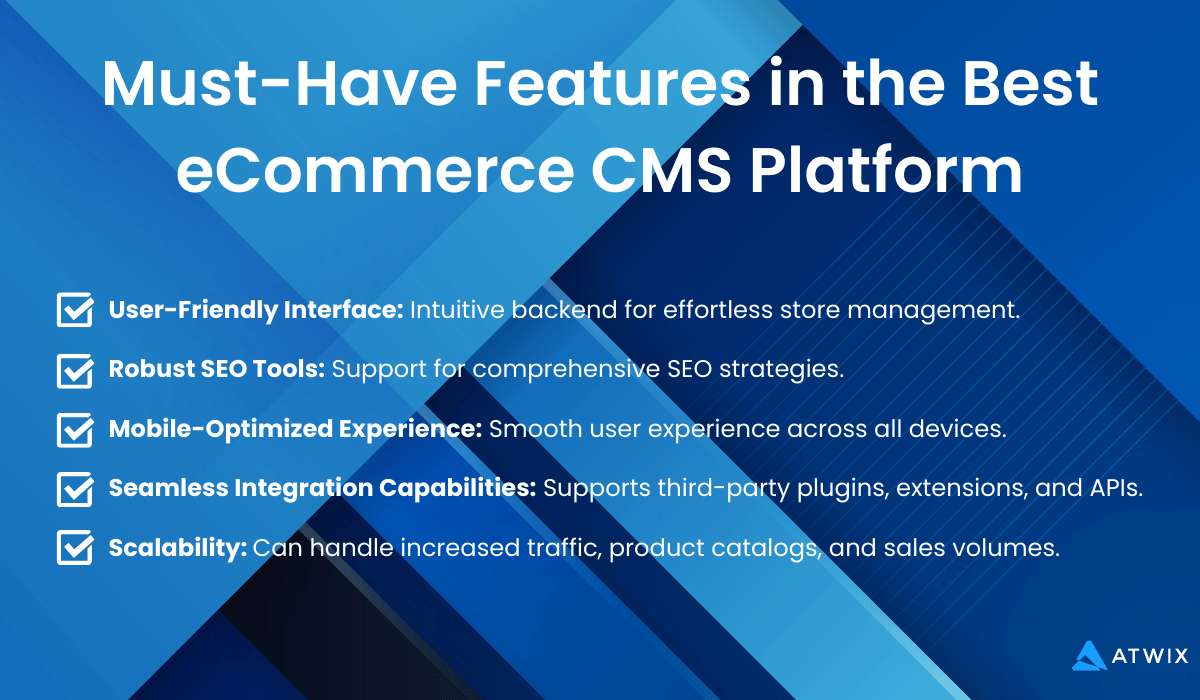
When evaluating the top CMS for eCommerce, consider these essential features. Many ecommerce CMS platforms offer a variety of tools to streamline operations, improve customer experience, and simplify store management. The best CMS for eCommerce integration provides robust APIs and third-party extension support, enabling smooth synchronization with payment gateways, CRMs, and ERPs to streamline operations.
User-Friendly Interface
Your CMS should be intuitive, allowing you to manage your store effortlessly. A user-friendly backend ensures that you can update products, process orders, and manage customer information without a steep learning curve.
Robust SEO Tools
Search engine optimization is crucial for online visibility. Look for platforms that support comprehensive SEO strategies with easy-to-edit URLs, meta titles, and descriptions. The best SEO practices for eCommerce emphasize using a CMS that offers built-in SEO features and integrates with popular Magento 2 SEO extensions. The best CMS for eCommerce marketplace success will also ensure that your website is optimized for search engines right from the start.
Mobile-Optimized Experience
With mobile commerce on the rise, ensure your chosen CMS offers a smooth user experience across all devices. Mobile responsiveness is no longer optional—it’s a necessity for reaching today’s on-the-go shoppers.
Seamless Integration Capabilities
Your eCommerce CMS should play well with others. Check if the platform supports smooth integration with third-party plugins, extensions, and APIs. This flexibility allows you to expand your store’s functionality as your business grows. Ecommerce CMS platforms that integrate seamlessly with third-party tools can significantly enhance operational efficiency and reduce manual workload.
Scalability
Choosing the best CMS for eCommerce websites ensures that your online store is equipped with features that support scalability, SEO, and seamless integration capabilities.As your online business expands, your CMS should be able to grow with you. The best eCommerce CMS platform will offer scalable solutions that can handle increased traffic, product catalogs, and sales volumes without compromising performance.
Top 11 CMS for eCommerce in 2024: In-Depth Analysis
Choosing the top CMS for eCommerce can significantly impact the success of your online business. From enhancing user experience to managing complex catalogs, selecting the right platform is critical. Whether you’re seeking a B2B eCommerce CMS with advanced capabilities or the best CMS for eCommerce tailored to small businesses, this list provides solutions for every need. Each platform offers unique features and benefits to help you scale your business and create seamless customer experiences. Below, we explore the leading platforms and help you identify the ideal choice for your eCommerce goals. Platforms like Adobe Commerce, Shopware and Shopify are among the popular eCommerce CMS systems businesses rely on to deliver seamless shopping experiences and optimize store operations.
| Platform | Flexibility | SEO Features | Scalability | Mobile Optimization | Pricing |
|---|---|---|---|---|---|
| Adobe Commerce (Magento) | Extensive customization and flexibility | Advanced SEO tools | High scalability for enterprise-level businesses | Fully responsive designs and PWA support | Free (Open Source); Enterprise pricing on request |
| Shopware | Modern, modular architecture | Built-in SEO tools | Suitable for mid-sized to large businesses | Seamless mobile experience via PWA | Starts at $600/month |
| WooCommerce | Highly customizable via WordPress plugins | Leverages WordPress’s SEO capabilities | Good for small to medium businesses | Mobile-responsive themes | Free core plugin; add-ons extra |
| BigCommerce | Limited customization compared to open-source | Excellent built-in SEO tools | Suitable for businesses of all sizes | Fully optimized mobile themes | Starts at $29.95/month |
| Shopify | Limited advanced customization | Basic built-in SEO tools | Great for scaling startups and mid-sized businesses | Mobile-responsive designs | $29–$299/month |
| PrestaShop | Modular customization | Built-in SEO tools | Suitable for small to medium businesses | Mobile-friendly designs | Free core; managed plans start at $473/month |
| Squarespace | Limited customization | Basic SEO tools | Best for small businesses | Highly responsive templates | $16–$49/month |
| Drupal Commerce | Highly customizable | Built-in SEO tools | Handles complex, content-heavy sites | Mobile optimization requires additional modules | Free core; hosting extra |
| Wix | Limited customization | AI-driven SEO optimization | Suitable for small businesses | Fully mobile-friendly | $4.50+/month |
| HubSpot CMS Hub | Limited eCommerce features; strong marketing tools | Advanced SEO and analytics | Best for content-driven businesses | Responsive designs | $25+/month |
| Shift4Shop | Feature-rich but limited customization | Built-in SEO and marketing tools | Suitable for growing businesses | Mobile-optimized themes | Contact sales |
1. Adobe Commerce (Magento)
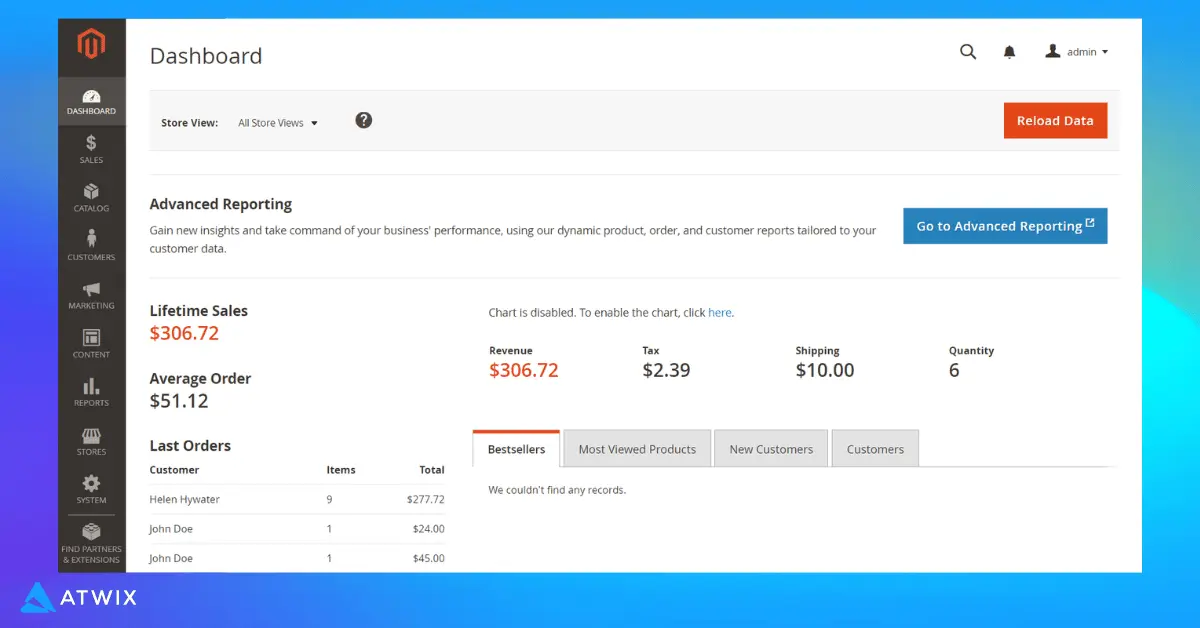
Adobe Commerce, formerly known as Magento, is a highly customizable and scalable eCommerce platform suitable for businesses of all sizes. It is particularly strong in B2B eCommerce, offering robust features tailored to business clients.This platform is designed to handle complex eCommerce needs, from multi-store setups to detailed product management. Its open-source nature gives businesses unmatched flexibility, allowing complete control over the design and functionality. With its comprehensive feature set, Adobe Commerce stands out as a leading choice for businesses that prioritize growth and innovation
Features:
- Robust security features and regular updates.
- Handles large product catalogs and high traffic volumes.
- Supports multiple payment options and currencies.
- Strong B2B eCommerce capabilities.
Limitations:
- Learning curve; may require specialized developers.
Pricing: Contact sales for detailed pricing information.
2. Shopware
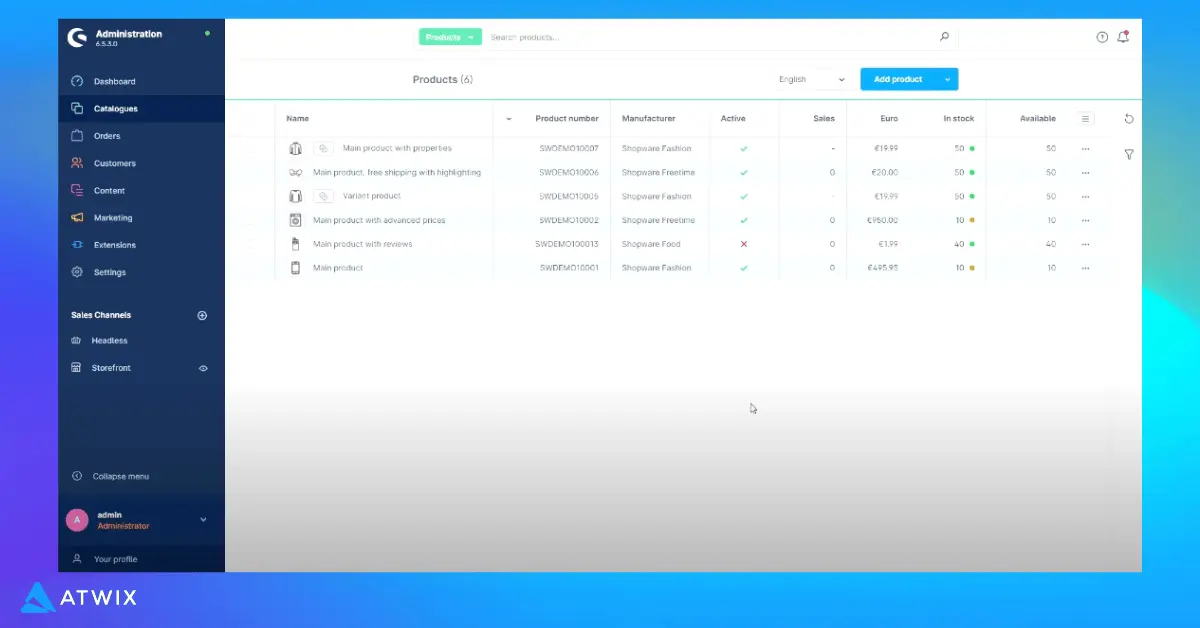
Shopware is a flexible eCommerce solution that caters to businesses of all sizes, from small shops to enterprise-level operations. Curious about how it stacks up against Magento? Check out our detailed comparison of Magento vs. Shopware. It’s particularly well-suited for businesses looking to create unique shopping experiences, with features like rule-based pricing and content-rich storefronts. The platform’s focus on innovation and emotional shopping resonates well with modern consumers. With its PWA capabilities, Shopware ensures a fast, engaging mobile shopping experience that meets the demands of today’s digital buyers.
Features:
- Intuitive administration panel with drag-and-drop functionality.
- Advanced content management features.
- Strong focus on emotional shopping experiences.
- Shopware PWA ensures a seamless, fast, and engaging mobile shopping experience for customers.
Limitations:
- Relatively new to the US market.
- Some advanced features may incur additional costs.
Pricing: Starts at $600/month for the professional version.
3. BigCommerce
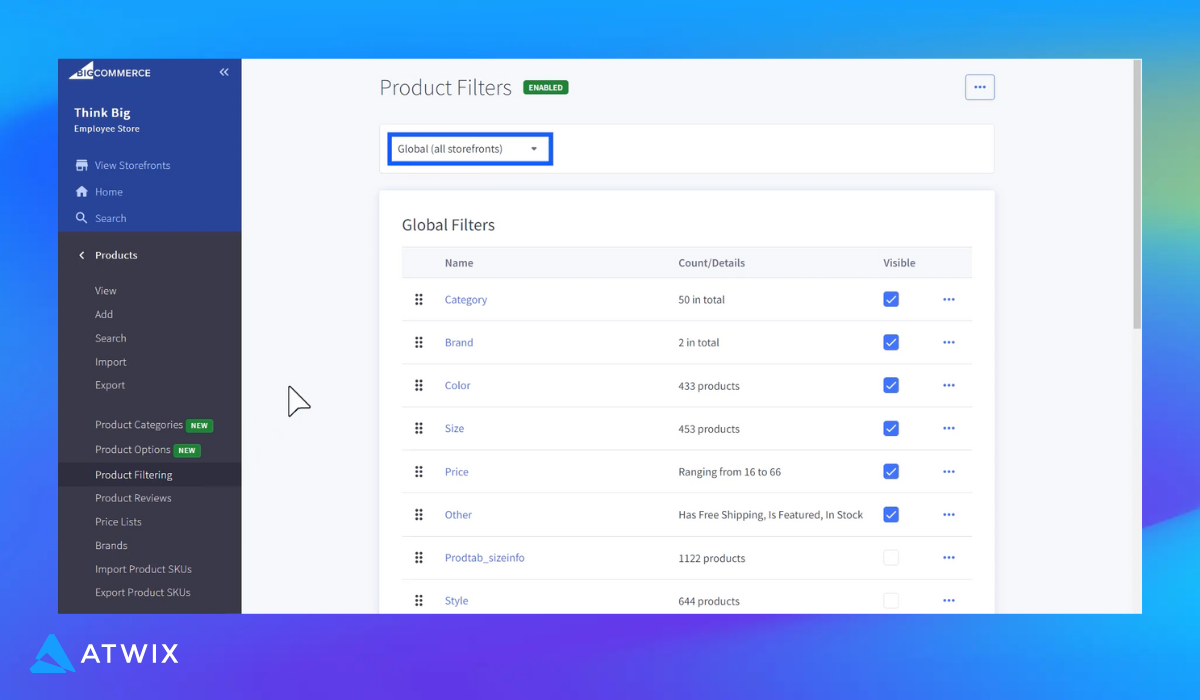
BigCommerce is a versatile SaaS platform that caters to businesses of all sizes, from startups to enterprise-level companies. Known for its powerful built-in features, BigCommerce eliminates the need for extensive third-party apps, simplifying store management. It’s an excellent choice for multi-channel selling, enabling businesses to connect with customers across platforms like Amazon, eBay, and Instagram. Whether you’re looking for robust SEO tools or scalability for high traffic, BigCommerce delivers reliable performance.
Features:
- User-friendly interface with drag-and-drop page builder.
- Excellent built-in SEO features and tools.
- Multi-channel selling capabilities (Amazon, eBay, Instagram, etc.).
- No transaction fees on any plan.
Limitations:
- Some advanced features may only be available on higher-tier plans.
Pricing: Plans start at $29.95/month.
4. Shopify
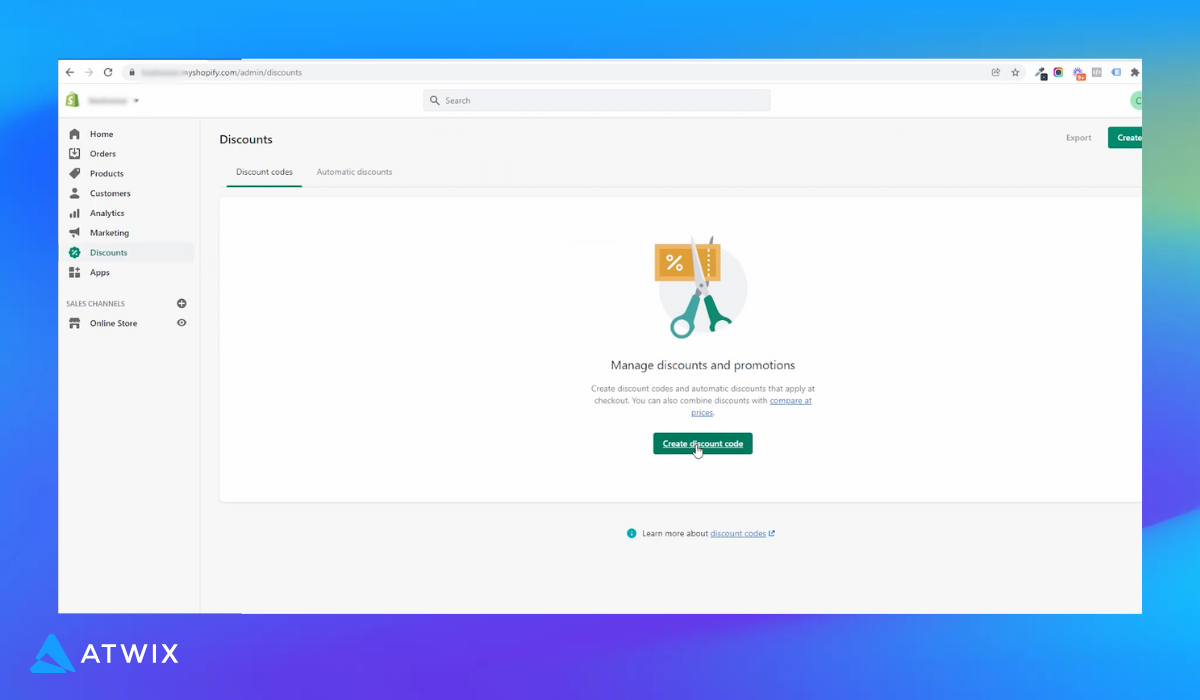
Shopify is one of the most popular eCommerce platforms, known for its ease of use and extensive app marketplace. With its all-in-one solution, Shopify is perfect for beginners and experienced users alike. The platform supports dropshipping, subscription services, and multi-channel selling, making it highly adaptable to diverse business models. Shopify’s intuitive interface and professional themes make it simple to create visually stunning online stores without prior design experience.
Features:
- Beginner-friendly with a gentle learning curve.
- Wide range of professional themes for various industries.
- Built-in dropshipping support.
- 24/7 customer support.
Limitations:
- Transaction fees apply unless using Shopify Payments.
- Some essential features require paid apps.
Pricing: Free 14-day trial, then plans range from $29 to $299 per month.
5. PrestaShop
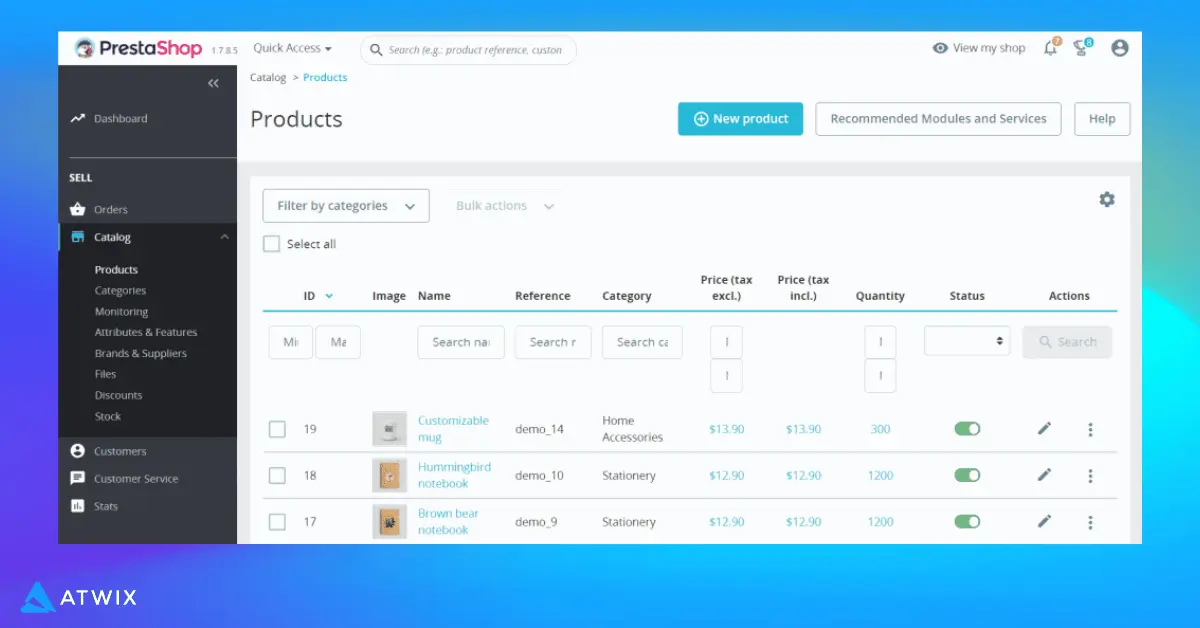
PrestaShop is an open-source platform that offers a good balance between functionality and affordability. Its multi-language and multi-currency support make it an excellent choice for businesses targeting international markets. With its modular design, PrestaShop allows merchants to pick and choose features that best suit their needs. Whether you’re starting small or planning to scale, this platform provides the tools needed for effective eCommerce operations.
Features:
- Cost-effective solution with a large community for support.
- Multilingual and multi-currency support.
- Customizable through modules and themes.
Limitations:
- Requires technical knowledge for setup and customization.
- Some essential features may require paid modules.
Pricing: The core software is free, but hosting and add-ons cost extra.
6. WooCommerce
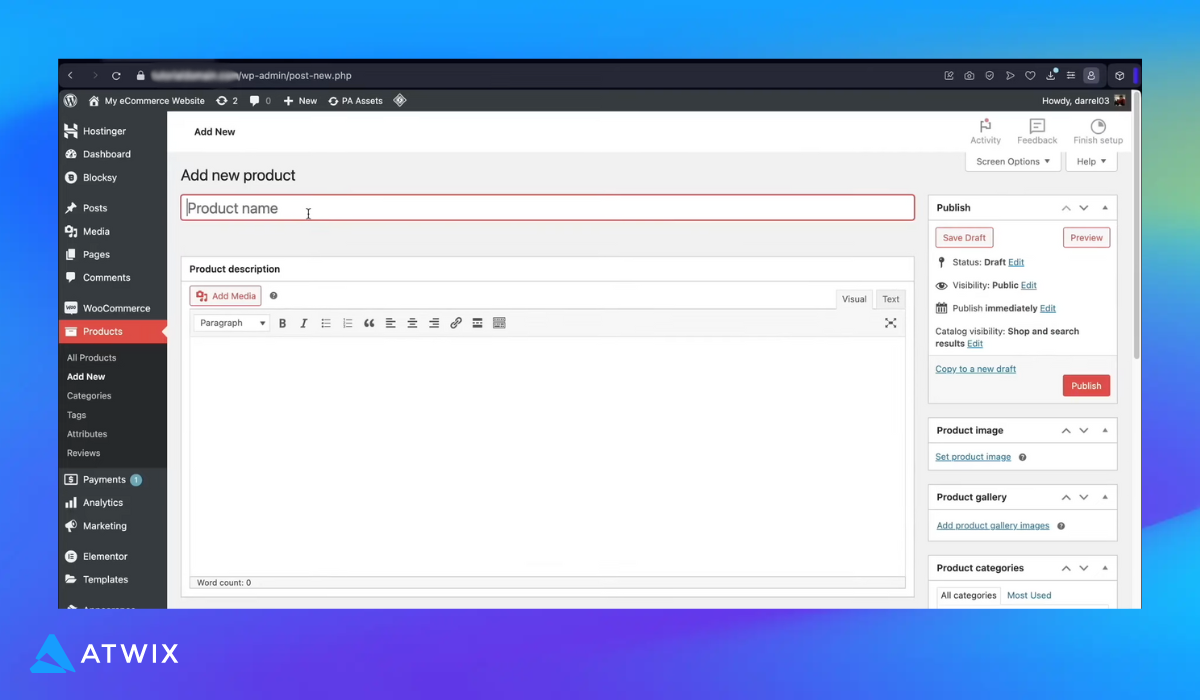
WooCommerce is an open-source eCommerce plugin built for WordPress, making it a top choice for businesses already familiar with the WordPress ecosystem. To understand the differences between these platforms, read our comparison of Magento vs. WooCommerce. Its seamless integration with WordPress makes it ideal for those looking to add eCommerce functionality to their existing websites. The platform supports various business sizes, offering both simplicity for small stores and scalability for growing operations. WooCommerce’s flexibility lies in its vast library of plugins and themes, catering to nearly every eCommerce requirement.
Features:
- Highly SEO-friendly, leveraging WordPress’s robust SEO capabilities.
- Mobile-optimized themes and responsive design out of the box.
- Real-time shipping rates and flexible tax settings.
- Extensive library of free and premium extensions.
Limitations:
- Requires separate hosting and SSL certificate.
- Advanced features may require additional plugins, potentially increasing costs.
Pricing: The core plugin is free, with add-ons ranging from $0 to $200.
7. Squarespace
Known for its stunning templates, Squarespace offers an all-in-one solution for creating beautiful online stores. It’s ideal for small businesses and entrepreneurs who want to focus on aesthetics without compromising functionality. The platform integrates hosting, security, and design, making it a straightforward choice for non-technical users. With built-in marketing tools and an intuitive dashboard, Squarespace simplifies the process of launching and managing an eCommerce store.
Features:
- Visually appealing, professionally designed templates.
- Integrated hosting and security.
- Built-in marketing tools and SEO features.
Limitations:
- Limited payment gateway options compared to some competitors.
- No phone support, which may be a drawback for some users.
Pricing: eCommerce plans range from $16 to $49 per month.
8. Drupal Commerce
Drupal Commerce is an open-source eCommerce framework built on top of the Drupal CMS, offering high flexibility and customization options. Its API-first architecture allows seamless integration with third-party tools and services. The platform is particularly advantageous for content-heavy websites that require robust eCommerce functionality. Drupal Commerce’s strong security measures make it a reliable option for businesses handling sensitive customer
Features:
- Highly customizable with a large developer community.
- Strong security features and regular updates.
- Excellent for handling complex, content-heavy sites.
Limitations:
- Steep learning curve; best suited for developers or tech-savvy users.
- Fewer out-of-the-box eCommerce features compared to dedicated platforms.
Pricing: The core software is free, but hosting and premium modules cost extra.
9. Wix
Wix is a user-friendly website builder that has expanded its eCommerce capabilities in recent years. Its AI-powered design tools and drag-and-drop functionality make it accessible to beginners while offering enough flexibility for advanced users. The platform caters well to small businesses looking for a cost-effective and visually appealing solution. Wix also includes marketing automation features, helping merchants engage with their customers more effectively.
Features:
- Intuitive drag-and-drop interface.
- AI-powered design assistance.
- Built-in marketing and SEO tools.
Limitations:
- Limited customization options compared to open-source solutions.
- Advanced eCommerce features are only available on higher-tier plans.
Pricing: eCommerce plans start at $4.50 per month.
10. HubSpot CMS Hub
While not primarily an eCommerce platform, HubSpot’s CMS Hub offers robust content management features that can be integrated with eCommerce functionality. It’s particularly appealing to businesses focused on inbound marketing and CRM integration. The platform’s SEO and analytics tools provide valuable insights to improve overall performance. For content-driven commerce, HubSpot CMS Hub stands out as a strategic choice for growing businesses.
Features:
- Excellent marketing automation and CRM integration.
- Strong focus on content-driven commerce.
- Advanced SEO and analytics tools.
Limitations:
- Higher cost compared to dedicated eCommerce platforms.
- May require additional integrations for full eCommerce functionality.
Pricing: Starts at $25 per month, with eCommerce features available on higher-tier plans.
11. Shift4Shop
Formerly 3dcart, Shift4Shop is a feature-rich eCommerce platform suitable for businesses of all sizes. It’s a cost-effective solution for businesses looking to maximize ROI with no transaction fees and a wide range of built-in features. The platform supports various business models, from small retailers to large-scale operations. With a focus on SEO and marketing, Shift4Shop helps businesses enhance their online visibility and customer engagement.
Features:
- No transaction fees.
- Built-in features that often require paid add-ons on other platforms.
- Strong focus on SEO and marketing tools.
Limitations:
- Some templates may look outdated and require customization.
- Learning curve can be steep due to the abundance of features.
Pricing: Contact sales for detailed pricing information.
Conclusion: Choosing the Best eCommerce CMS Platform for Your Business
Selecting the best CMS for eCommerce is a crucial decision that can significantly impact your online business’s success. Each platform we’ve discussed offers unique strengths and may be the ideal choice depending on your specific needs, technical expertise, and business goals. For more insights, explore our comparisons such as Magento vs. PrestaShop, Magento vs. Shopify, and Magento vs. BigCommerce.
Atwix is a full-service eCommerce agency renowned for its expertise in Magento and Adobe Commerce. We deliver comprehensive Magento solutions, including development, design, performance optimization, and magento website maintenance. Our services range from Magento 2 development and ERP integration to performance audits and SEO enhancements. We also offer custom Magento development, ensuring tailored solutions that meet unique business needs.
Remember, the right CMS is not just about features—it’s about finding a solution that empowers you to focus on what you do best: growing your business and delighting your customers. With the right platform as your foundation, you’ll be well-equipped to thrive in the exciting and ever-evolving world of eCommerce.
If you need expert guidance in selecting and implementing the best eCommerce CMS for your business, don’t hesitate to reach out. Our team is here to help you drive your eCommerce success and focus on growing your business and delighting your customers.
Frequently Asked Questions
Got some questions? We’re here to answer. If you don’t see your question here, drop us a line with out Contact form.
What is the best eCommerce CMS platform for eCommerce in 2024?
The best eCommerce CMS platform for 2024 depends on your business’s specific needs. Adobe Commerce (Magento) is highly recommended for larger businesses due to its scalability and customizability, while platforms like WooCommerce and Shopify cater to smaller businesses with straightforward features. For B2B eCommerce, Adobe Commerce offers specialized tools for business clients.
How do I choose the right CMS for my eCommerce business?
Choosing the right CMS for eCommerce involves assessing your scalability, SEO tools, ease of use, and integration needs. The best eCommerce CMS for your business should align with your technical expertise and growth ambitions. Platforms like Shopware and Magento are excellent for businesses seeking advanced customization and scalability.
Which eCommerce CMS platforms are best suited for B2B eCommerce?
For B2B eCommerce, Adobe Commerce (Magento) and Shopware stand out as top choices. These platforms provide robust features such as multi-store management, advanced pricing rules, and seamless integration capabilities that cater to complex B2B requirements.
Are open-source eCommerce CMS platforms better than SaaS platforms?
Open-source eCommerce CMS platforms like Magento and WooCommerce offer unparalleled customizability, making them ideal for businesses with technical expertise or specific needs. SaaS platforms like Shopify, on the other hand, simplify setup and maintenance, making them a popular choice for small businesses seeking a managed CMS for eCommerce.
Can Atwix help with CMS migration or customization?
Absolutely! Atwix specializes in CMS migration, customization, and development for platforms like Magento. Whether you need a custom solution or assistance with transitioning to the best eCommerce CMS, our experts ensure a seamless experience tailored to your business.
